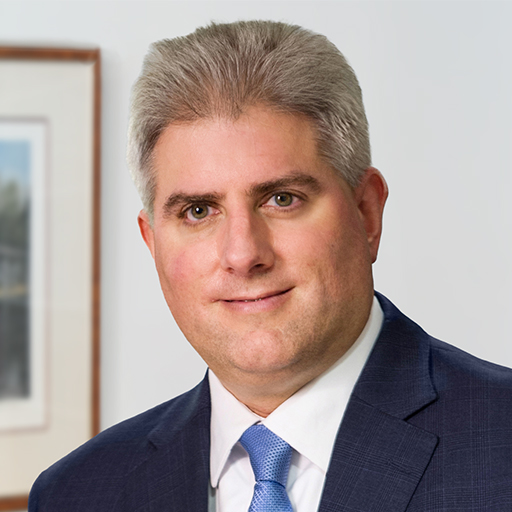 Do you remember the unfortunate story of Terri Schiavo? In February 1990, Terri Schiavo, a Florida resident, suffered a heart attack that deprived her brain of oxygen for several minutes and caused brain damage. Terri slipped into what doctors describe as a “persistent vegetative state,” which is an irreversible loss of consciousness. Terri could no longer communicate with others, her movement was limited to minor reflexive nerve and muscle activity, and she could only survive with the assistance of an artificial feeding tube. Terri was only 26 years old.
Do you remember the unfortunate story of Terri Schiavo? In February 1990, Terri Schiavo, a Florida resident, suffered a heart attack that deprived her brain of oxygen for several minutes and caused brain damage. Terri slipped into what doctors describe as a “persistent vegetative state,” which is an irreversible loss of consciousness. Terri could no longer communicate with others, her movement was limited to minor reflexive nerve and muscle activity, and she could only survive with the assistance of an artificial feeding tube. Terri was only 26 years old.
For several years, Terri’s husband and her parents requested that Terri be kept alive with an artificial feeding tube. Initially, the family hoped that this would give Terri some time to recuperate from her injuries. Unfortunately, by 1998, Terri had shown no signs of improvement, and her husband requested the removal of the feeding tube because he felt that Terri would not have wanted to continue to live in this condition. Terri’s parents vehemently disagreed with the request to remove the feeding tube – they would not let go of the hope that Terri might improve.
The ensuing legal battle over Terri’s right to die consumed her loved ones and the court system. For seven painful years, both parties fought to convince the courts that they knew best what Terri would have wanted in these circumstances. The Florida courts consistently ruled in favor of Terri’s husband, but Terri’s parents wouldn’t give up – they appealed the courts’ decisions again, and again, and again.
No matter how you may feel about the moral and political issues that Terri’s case brings to the forefront, most people would agree that they would not want their loved ones to suffer the 15-year nightmare that Terri and her family experienced. Fortunately, the means to plan for end-of-life medical decisions are available.
Legal Options That Can Prevent Family Turmoil
Terri Schiavo’s case highlights the fact that the elderly are not the only people at risk of becoming incapacitated and being compelled to face life and death medical decisions. Moreover, all Americans have the legal right to make decisions about what kind of medical treatments or procedures they choose to have, or choose not to have, if death is imminent or if they are permanently unconscious and have no reasonable expectation of recovery. Every state in the country has passed laws detailing how to exercise those rights. In 1990, Florida law provided Terri the right to make a Living Will which would have allowed Terri to express her wishes to her family and to prevent the years of family turmoil and court involvement.
Unfortunately, Terri did not exercise her right to execute an Advance Medical Directive, Living Will, or Health Care Power of Attorney before her heart attack. As a result, the Florida courts had no choice but to get involved in Terri’s personal affairs once her family could no longer agree on how to treat her condition. The most important lesson from Terri's case is that every adult should create a proper legal document expressing his or her wishes regarding end-of-life medical care.
Maryland Health Care Law and Advance Medical Directives
The Maryland Health Care Decisions Act provides that any competent adult can make decisions regarding the provision of health care to that individual or the withholding or withdrawal of health care from that individual. In Maryland, these decisions are expressed in writing through the use of an Advance Medical Directive. An Advance Medical Directive typically consists of two parts. The first part is the “Appointment of Health Care Agent,” where you name the individual who will make health care decisions for you if you are unable to make those decisions yourself. You should also name successors or back-up agents in the event your primary agent is unable or unwilling to serve as your agent. The second part of your Advance Medical Directive is your “Living Will,” where you express your wishes concerning end-of-life medical treatment.
Planning Early is Critical
An Advance Medical Directive should be prepared by an attorney who understands the laws and issues involved and can customize a plan according to your wishes. By being proactive, you give yourself the greatest chance that your wishes will be enforced. Terri Schiavo could have spared her family years of bitterness, strife, and public disharmony if she has just taken the time to clearly and unequivocally express her wishes. While her tragic end may have been impossible to avoid, Terri’s family would likely have been at peace had they known that Terri would have chosen to remove the feeding tube. Maybe if Terri had made her voice heard, her family could have remained united in the face of their common tragedy.
With appropriate planning, you can guarantee that your family is not challenged with making difficult decisions while they are already confronting a traumatic situation. Granted, it is difficult to face our own mortality and consider the inevitable. But by addressing these issues head on and discussing them, you will alleviate potential crises and show your loved ones how much they mean to you. The most important step you can take in creating any plan is to discuss your intentions with those who will be affected by it before the plan is needed.
Finally, it is crucial to remember that even if you have a Will, Trust, or other end-of-life legal documents in place, if they have not been recently updated, changes in the law or your own views could prevent them from accomplishing your intended objectives. An Advance Medical Directive is only one of several legal documents that every adult needs for an effective and complete estate plan.
David A. Lucas is an Attorney in Miller, Miller & Canby’s Estates & Trusts and Business and Tax Practice Groups. David is committed to providing his clients with a well-crafted estate plan so they may avoid probate, protect their assets and legacies, and provide for the security of their loved ones. He takes a special interest in ensuring that the dreams parents have for their children and grandchildren are not lost to taxes, poor planning, or procrastination. He speaks frequently on a variety of estate planning topics to both the general public and private groups.
David has focused his practice on helping families preserve their financial wealth and legacies for future generations through the use of Trusts, Wills, Powers of Attorney, Advance Medical Directives, Living Wills, and other estate planning strategies.
Contact David at 301-762-5212 to discuss your estate plan to take advantage of the laws available today and ensure flexibility for future changes. For more information on Miller, Miller & Canby’s Estates & Trusts Practice, click here.








Share this Article: